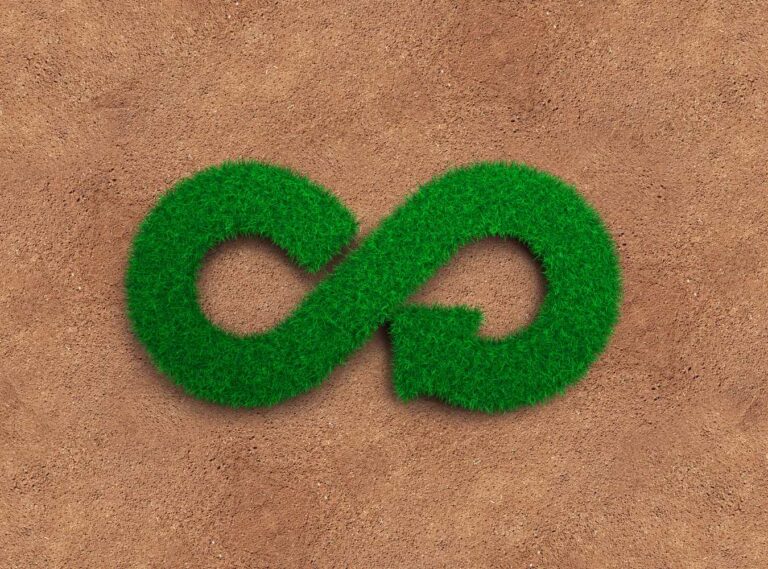
What is the Circular Economy?
The idea of a circular economy has been around for a long time.
While it was once a fringe topic, it has now gained popularity among environmentalists, governments, and businesses as one of the most promising solutions to our planet’s environmental issues.
To understand the circular economy, you first have to consider how current methods of production and consumption work, i.e. the linear economy.
The linear economy is sometimes described as ‘take, make, dispose’.
Think of the most recent thing you bought; raw materials had to be extracted and processed to make it, and then after you’re finished using the product, it will most likely end up in a landfill.
On the other hand, the circular economy involves sharing, leasing, reusing, repairing, refurbishing and recycling existing materials and products for as long as possible.
In this way, the life cycle of products is extended.
When a product reaches the end of its life, its materials are kept within the economy wherever possible.
These can be productively used again and again without the need to take more raw materials.
Educational content written by Carys Burton

Why Our Current System Doesn’t Work
As you may guess, the big issue here is waste.
The linear economy forces us to use more and more valuable raw materials on a planet with finite resources, and its effects can be devastating.
Firstly, the extraction of these materials from the Earth and their processing into usable products uses a massive amount of water and energy.
Secondly, as the products are sent to landfills, we bury these valuable materials, wasting their potential and causing the need for more to be extracted.
Not to mention that throwing them away can come with its own negative environmental effects, such as methane emissions from rotting organic waste.
We don’t only run the risk of running out of materials, either, as we are quickly running out of space to put landfills too.

Another issue with the linear economy, which may be less obvious, is how it encourages a culture of consumption where products aren’t built to last but to be replaced.
All in all, up to 45% of global emissions can only be tackled by changing how we make and consume products and food. The linear economy is simply not sustainable, and we need something better.
A Circular Economy for a Healthy Planet
The circular economy is the more sustainable option for the planet. It removes many economic activities that negatively impact human health and the environment, including releasing greenhouse gases and all types of pollution.
It encourages the design of durable, reusable, and recyclable products and helps us keep valuable materials in use as long as possible.

By preserving and enhancing renewable resources, it returns valuable nutrients to the soil to support regeneration and actively improve the natural world.
The benefits of a circular economy also go beyond the environment. When designed thoughtfully and inclusively, it offers the potential to bring new jobs, healthy lifestyles, and green growth.
For example, how we extract, use, and dispose of our resources can affect already vulnerable communities disproportionately.
Underserved communities across the globe have been overburdened with the negative environmental and health impacts caused by a non-circular economy.
Many landfills and manufacturing and processing facilities are located in developing nations or close to low-income communities.
By moving to a circular model, we reduce our impacts on nature and climate while ensuring that economies thrive, and people lead healthy, sustainable lifestyles.
Thankfully, the world is moving in this direction, and we can all play our part in embracing a more circular lifestyle today.





